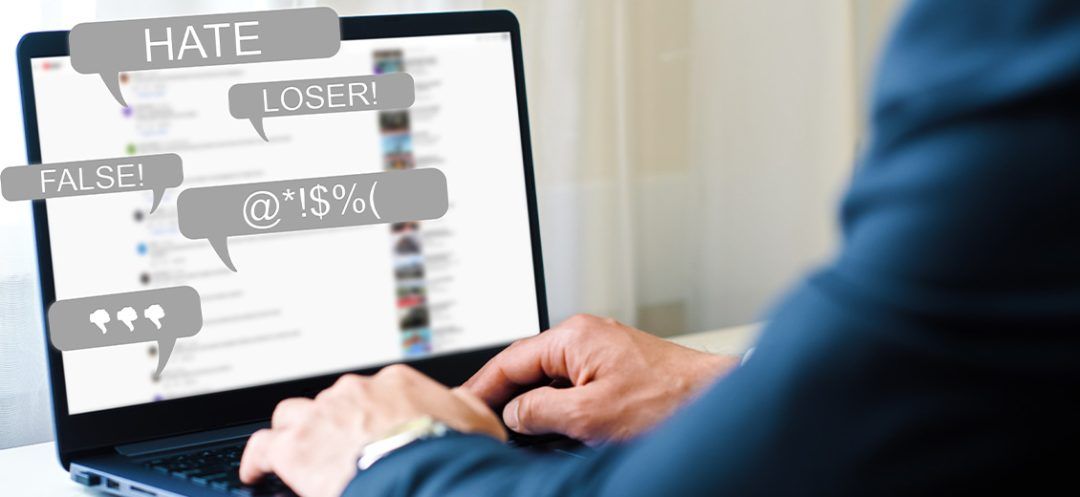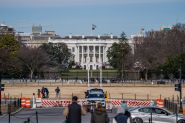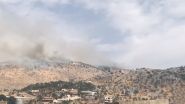
Hate speech has become an increasingly pervasive issue in today's interconnected world, particularly on social media platforms like X (formerly Twitter), amplifying divisive rhetoric with profound societal repercussions. In Lebanon, a country with a fragile sectarian balance, the recent surge in hate speech between Lebanese Shias and Lebanese Christians on social media is a worrying trend. The rise of political hate speech not only inflames tensions but also risks corrupting the very fabric of society, with potentially devastating long-term effects.
Recent monitoring on social media unveiled a trending topic: the campaign against Nabila Awad. MTV presenter, Nabila Awad, recently found herself at the center of a social media storm after voicing opposition to boycotting McDonald's, amidst widespread calls for a boycott of the brand due to its perceived political associations. Her remarks, intended as a personal stance, sparked a wave of backlash online. Critics quickly launched a hate campaign, with many accusing her of being insensitive to the broader political and social context. Nabila received death threats and hate messages because of her statement. The hate campaign highlighted the intense polarization on social media, where differing opinions can rapidly escalate into personal attacks and vilification.
Ghadi Francis, a well-known Lebanese journalist, responded to Nabila Awad's statement about boycotting McDonald's with a strong rebuttal, emphasizing the political implications of supporting the fast-food chain. Francis pointed out that every burger purchased at McDonald's indirectly contributes to the Israeli Army, referencing the claims that some of the company's profits are funneled into supporting Israel's military efforts.
While claims suggest that McDonald's indirectly supports the Israeli Army through profits, research revealed no concrete evidence of direct donations to Israel. This claim often circulates in the form of rumors or misinformation, particularly in the context of political conflicts in the Middle East. The origin of this belief is likely tied to the fact that McDonald's operates in Israel through a local franchise, as it does in many other countries. The local franchise sponsored the Israeli army with free meals during the Gaza war. This PR stunt triggered a worldwide boycott movement, that made McDonald’s corporation buy back the 225 franchised Israeli restaurants.
McDonald's, as a corporation, does not publicly align itself with any political or military causes, and there is no verifiable information to suggest that the company donates to the army nor to the state of Israel. Boycotting McDonald’s for health reasons makes more sense, since evidence about harmful products is plentiful.
Despite this, the incident fueled a hate campaign on social media, particularly on X, a platform owned by Elon Musk, known for his support of Israel. He has openly expressed support for Israel and even attended Netanyahu's speech in Congress, applauding a figure that “Free Palestine” supporters consider a war criminal. However, Lebanon saw no widespread boycott against the platform or Musk.
These platforms have also become breeding grounds for hate speech, where individuals can anonymously spread harmful rhetoric with little accountability. On platforms like X, hate speech can spread rapidly, creating echo chambers where users are exposed only to views that reinforce their biases. This not only normalizes hate but also emboldens individuals to express increasingly extreme opinions. Opinions on social media, akin to junk mail, inundate users with unwanted content. The Hate messages found on X between Hezbollah supporters and the opposition supporters are worse than speech used during the civil war. Hate will consume both sides eventually. Whenever a user states an opinion that differs from that of Hezbollah’s supporters, comments become personal rather than argumental, with no valid counter argument. This suppression technique is fueling more hate towards Hezbollah’s supporters and it’s destroying any future communications between both sides, giving more reasons for far-right radicals to rise and demand an actual divorce between Lebanese.
“Social media gives legions of idiots the right to speak when they once only spoke at a bar after a glass of wine, without harming the community... but now they have the same right to speak as a Nobel Prize winner. It's the invasion of the idiots.” ― Umberto Eco
Political hate speech is a powerful tool that can corrupt the hearts and minds of individuals, leading to increased polarization and a breakdown in social cohesion. When political leaders or influential figures engage in hate speech, they legitimize such behavior, encouraging others to follow suit. This can create a cycle of hatred, where opposing groups become increasingly entrenched in their views, seeing each other not as fellow citizens but as enemies.
In Lebanon, the rise of hate speech between Lebanese Shias and Lebanese Christians is a stark reminder of how fragile inter-communal relations can be. The consequences of this are severe: it deepens mistrust, fuels animosity, and can ultimately lead to real-world violence.
One of the immediate consequences of hate speech is the erosion of social trust. When individuals are constantly exposed to hateful rhetoric online, they begin to view members of other communities with suspicion and fear. Fear can be easily exploited.
Hate speech erodes social trust, making it more difficult for people to cooperate, even on issues of common interest. Moreover, hate speech can lead to the marginalization of communities.
When one group is consistently vilified online, it can lead to discrimination in real life, with individuals being denied opportunities or facing hostility in public spaces.
In the worst-case scenario, hate speech can incite violence. In a country like Lebanon, where past conflicts have often been sparked by sectarian tensions, the proliferation of hate speech on social platforms could readily escalate into physical clashes. Continuous exposure to dehumanizing messages makes it simpler for individuals to rationalize violent actions against perceived adversaries.
While freedom of speech is important, it should not come at the cost of societal harmony and safety.
Hate speech acts as a corrosive influence capable of unraveling the intricate fabric of society. Such behavior is propelling the nation towards a point of irreversible division, fueling calls for the fragmentation of our country into two distinct states.
Read more



Comments